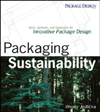Survey finds that protecting Earth’s resources can boost personal happiness
Is renewable living the key to happiness? New data from Tetra Pak offers some compelling evidence that the answer is yes – great news as International Day of Happiness was on March 20.
Findings from a survey commissioned by Tetra Pak found that adopting a few simple, renewable lifestyle habits that help protect the earth’s natural resources can help people go from feeling glum to good, with 70% of those surveyed claiming they felt happier when making eco-minded choices.
These results come on the heels of the world’s first social experiment in renewability, which uncovered how renewable lifestyle choices influence levels of happiness. The Renewable Living Social Experiment was conducted in partnership with University College London (UK) and the Tilburg University (NL). It challenged leading bloggers in five countries (United States, Brazil, India, France and Spain) to take small steps to adopt simple, renewable habits, from walking or biking to work, to making eco-minded choices at the grocery store. The experiment showed a significant increase in both how habitual the behaviors became, and how happy they made the bloggers over the 28-day period.
Now, Tetra Pak is inviting people to find joy in protecting the planet’s resources with the #RenewableLiving Challenge that encourages participants to adopt simple, renewable habits every day over a 28-day period. To kick off the challenge, the company introduced the ‘Habits of Happiness' Quiz to help participants assess where they stand in the happiness scale, both before and after the challenge.
“At Tetra Pak, we believe that even simple lifestyle behaviors have the power to make a big impact, on both a personal and global scale,” says Elisabeth Comere, Director of Environment and Government Affairs for Tetra Pak. “This study shows that the collective benefit of the small actions we take, from taking shorter showers to choosing products with renewable packaging, can benefit the world around us while making us feel happier.”
#RenewableLiving Challenge:
Adopting one of these simple habits can help protect the planet while fast-tracking levels of happiness:
· Taking shorter showers to conserve water
· Buying only what can be consumed when shopping at the grocery store
· Using re-usable drink containers when possible
· Biking or walking to work instead of driving (or car-pooling with others when driving is the only option)
· Choosing food and beverage products in recyclable and renewable packaging at the grocery store, like cartons made mainly of paperboard, a natural resource that can be replenished overtime
Consumers can learn more about adopting simple, renewable lifestyle habits for the Renewable Living challenge by visiting www.tetrapakusa.com/renewable-living to download the Renewable Living white paper or to take the ‘Habits of Happiness’ Quiz and share their results using #RenewableLiving.
Looking for a reprint of this article?
From high-res PDFs to custom plaques, order your copy today!






